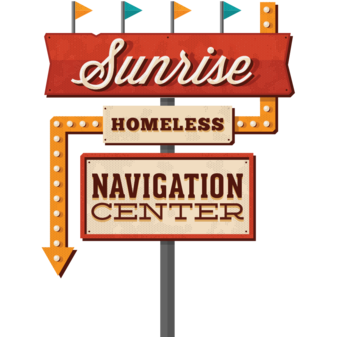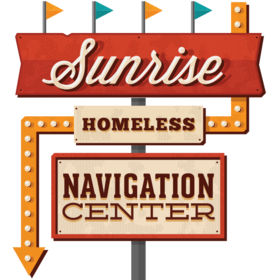A Whole-Person Approach to Homelessness
Homelessness is more than just the absence of a roof over a person’s head - it is a deeply complex experience shaped by trauma, health challenges, and systemic inequities.
At Sunrise Homeless Navigation Center, we believe in a community where people experiencing homelessness have innovative, whole-person solutions to address the whole-person trauma of being unsheltered.
In the past year, Sunrise has experienced an 83% increase in clients served, with 19,878 individuals identifying as homeless or housing insecure in 2024.
Sunrise data collected through the Homeless Management Information System (HMIS) provides insight into the demographics of those we serve:
Non-White: 61.5%
White, Non-Hispanic: 38.5%
Reported Abuse or Trauma: 38%
Reported Criminal History: 40%
No Income at Entry: 54%
Substance Use: 26%
Chronic Homelessness: 45%
Medical Disability (Chronic Health Condition): 40%
Mental Health Disability: 58%
No Health Insurance: 65%
In addition to serving individuals experiencing homelessness, Sunrise also supports individuals and families living below 200% of the Federal Poverty Income Level (FPIL). Many of these clients lack the financial resources to meet basic needs such as food, housing, and healthcare. Systemic inequities, displacement, and discrimination further compound these challenges, making access to Sunrise’s programs and services critical.
Our interconnected network of services ensures that individuals have access to resources they need to meet basic needs and beyond. From consistent access to food, showers, and laundry services to critical medical care, housing assistance, and mental health support, we provide comprehensive care tailored to each individual’s journey.
By treating the whole person and addressing the trauma that accompanies homelessness, we restore dignity and empower individuals as they work towards their wellness and housing goals.
At Sunrise, we remain steadfast in our mission to offer pathways to housing through low-barrier access to wraparound services by providing innovative, trauma-informed, and person-centered programming that engages our communities and leads system-wide transformation.

